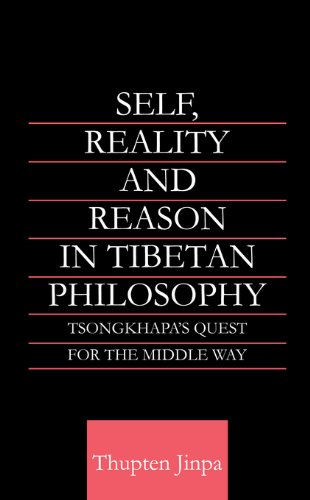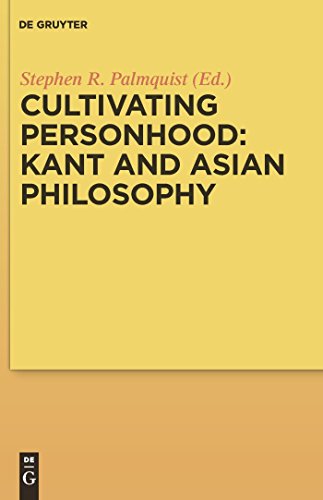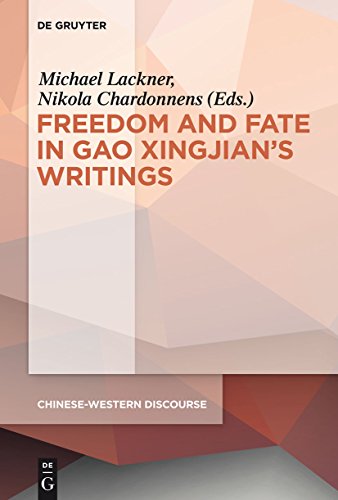
By Parviz Morewedge
In this e-book, first released in 1973, Professor Parviz Morewedge, a professional on Islamic philosophy and mysticism, offers a serious exposition of 1 textual content of ibn Sina (Avicenna), the good Persian thinker who lived from 980 to 1037. The textual content is his Metaphysica within the Danish Nama-I ‘ala’I (The publication of medical Knowledge). as well as a translation of the textual content from Persian into English, this variation incorporates a serious remark at the significant arguments present in the textual content, and notes and references to different texts of ibn Sina in addition to to appropriate texts of Greek philosophers, rather Aristotle, Plotinus and Proclus. there's additionally a thesaurus of the most important phrases utilized in the Metaphysica, with their Persian, Arabic, Greek and Latin equivalents the place useful. This publication is worried basically to teach that even if within the textual content ibn Sina inns to the Aristotelian vocabulary and Neo-Platonic topics, and looks to be in accord with the Islamic culture, there's proof that many doctrines expressed by means of him might be thought of non-Greek and non-Islamic. those comprise his strange doctrine of Self (nafs) and the doctrine of the required Existent (wajib al-wujud). the writer makes an attempt to elucidate the level to which salient positive factors of ibn Sina’s place are in contract with what can be considered as Sufic doctrines.
Read or Download The 'Metaphysica' of Avicenna (ibn Si?na?): A critical translation-commentary and analysis of the fundamental arguments in Avicenna's 'Metaphysica' in ... Islamic Thought in the Middle Ages) PDF
Best religious & spiritual eastern philosophy books
The Bioethics of Regenerative Medicine: 102 (Philosophy and Medicine)
Regenerative drugs is wealthy with promethean grants. using human embryonic stem cells in examine is justified via its advocates when it comes to can provide to remedy quite a lot of ailments and disabilities, from Alzheimer’s and Parkinsonism to the result of center assaults and spinal wire accidents. extra widely, there's the promethean attract of having the ability to revamp human organic nature when it comes to the targets and matters of people.
The paintings explores the old and highbrow context of Tsongkhapa's philosophy and addresses the severe matters relating to questions of improvement and originality in Tsongkhapa's inspiration. It additionally bargains broadly with one in all Tsongkhapa's fundamental issues, particularly his makes an attempt to illustrate that the center means philosophy's deconstructive research doesn't negate the truth of the typical international.
Cultivating Personhood: Kant and Asian Philosophy
Authors from around the globe unite for you to domesticate discussion among Asian and Western philosophy. The papers forge a brand new, East-West comparative course quite often variety of matters in Kant reviews. the idea that of personhood, an important for either traditions, serves as a springboard to handle matters reminiscent of wisdom acquisition and schooling, ethics and self-identity, religious/political group development, and cross-cultural realizing.
Polyphony Embodied - Freedom and Fate in Gao Xingjian’s Writings (Chinese-Western Discourse)
Like artists, vital writers defy unequivocal interpretations. Gao Xingjian, winner of the Nobel Prize in literature, is a sophisticated author, deeply rooted within the chinese language previous whereas stimulated by way of paragons of Western modernity. the current quantity brings jointly for the 1st time a set of essays at the issues of freedom and destiny within the inventive works of Gao Xingjian.
- Ibn Tufayl's Hayy Ibn Yaqzan: A Philosophical Tale
- An Approach to Ip Man Style Wing Chun
- El ardor (Panorama de narrativas) (Spanish Edition)
- Yinyang (New Approaches to Asian History)
Additional info for The 'Metaphysica' of Avicenna (ibn Si?na?): A critical translation-commentary and analysis of the fundamental arguments in Avicenna's 'Metaphysica' in ... Islamic Thought in the Middle Ages)
Sample text


